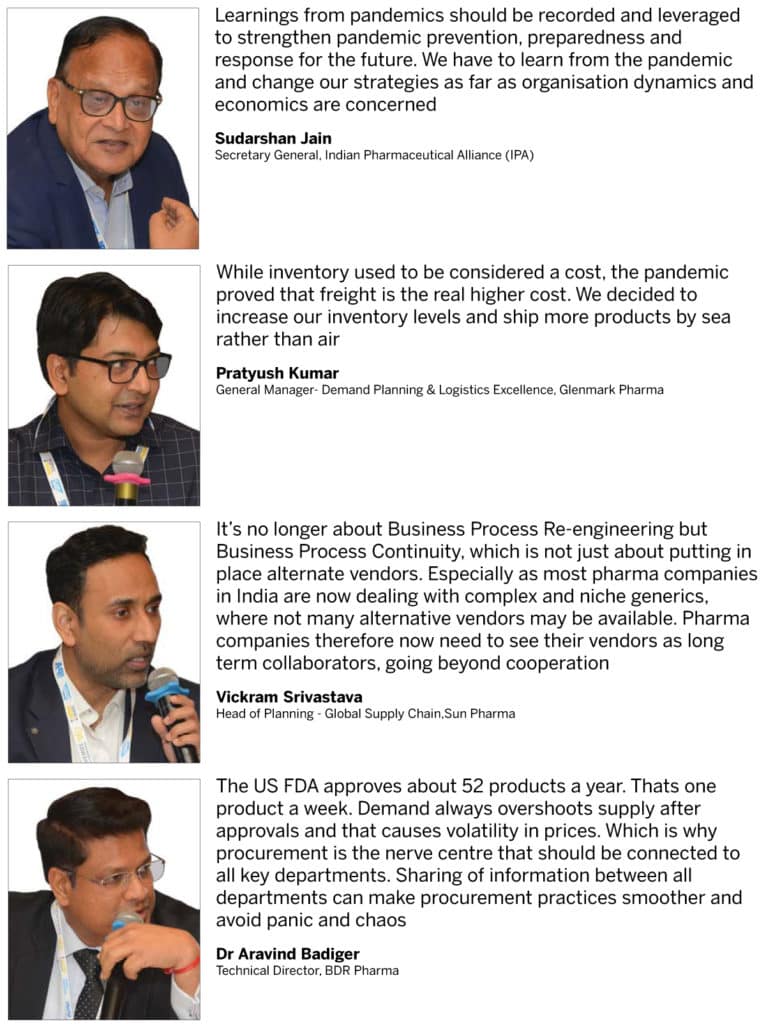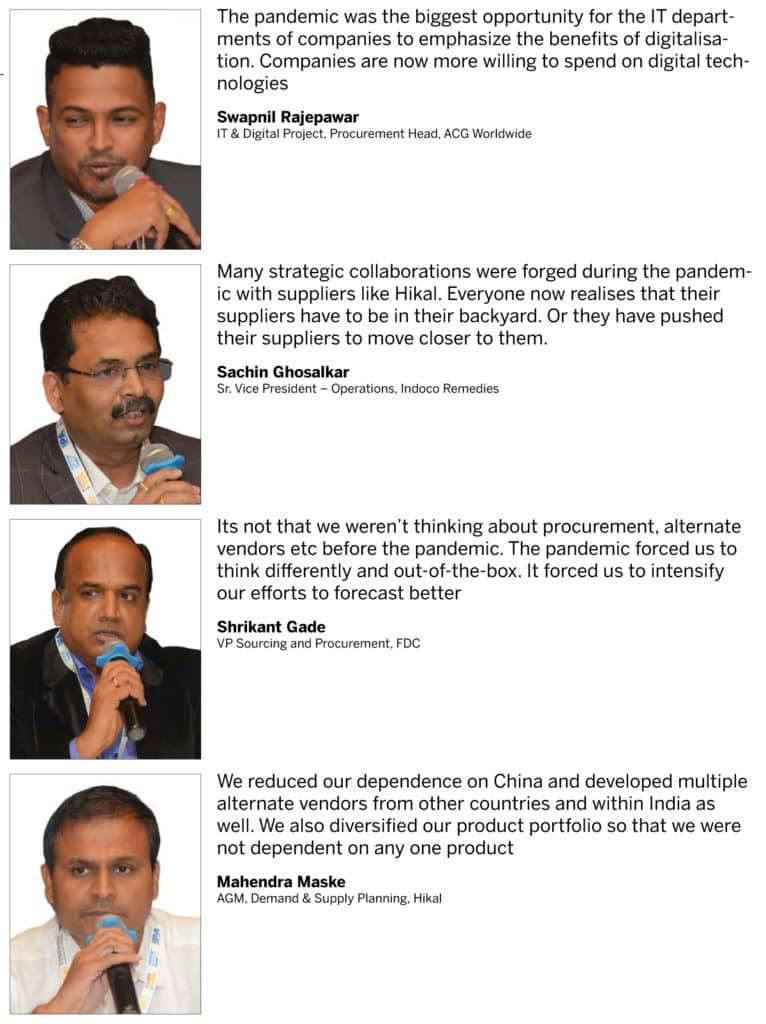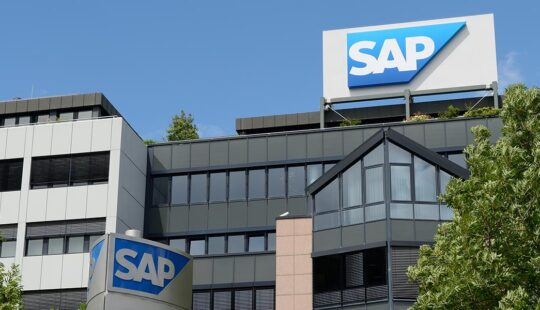Procurement experts highlight how increasing the resilience and agility of supply chains, with technology as a pivot, is crucial for the pharma sector to move up the value chain
Almost three years after the COVID pandemic put the world into lock down, we are still not yet free of COVID-19. In fact, we now have steadily increasing cases of monkeypox, which was previously confined to endemic regions.
Are we better prepared for the next health threat? Have we plugged the gaps to respond faster? Let’s not forget the many obstacles on this path.
For one, analysts point out that India Pharma Inc is still heavily dependent on imports for key raw materials. More than 70 percent of its raw material requirements and in the case of certain drugs, more than 90 percent are imported. Nearly 70 percent of APIs are imported from China, and the cost has reportedly jumped by orders of magnitude, thanks to geo-political concerns. This has impacted the margins of pharma drugs.
While higher raw material, freight costs as well as pricing pressures in the US business due to high channel inventory will continue to drag overall performance for the pharma sector, how will the first two challenges hamper the development of medicines and diagnostics for future health threats?
Corporate boardrooms have been in re-set mode to prepare themselves for this scenario, incorporating the hard lessons of the COVID pandemic into business-as-usual practices. This exercise has been enriched with direct feedback from cross-functional heads who were never part of boardroom discussions in the pre-pandemic era.
This is vital because some vital benchmarks have not yet – and probably will not – revert back to pre-pandemic times.
Express Pharma, as part of SAP India’s Industry Knowledge Exchange (IKEX) Series, in partnership with the Indian Pharmaceutical Alliance (IPA), has culled some of these insights over a series of interactions. In May, we met up with CFOs, IT heads, and CRAMS leaders for an overview of how collaborations and technology are driving business innovation in the lifesciences sector. (https://www.expresspharma.in/collaboration-tech-driving-business-innovation-in-life-sciencessector/).

And, in July, we got pharma procurement leaders, along with IT and operational leaders, to decipher their game plans on the procurement and SCM side. While the SAP team gave an overview of how pharma companies can transform their organisations into intelligent enterprise by achieving value with intelligent ERP systems, pharma leaders spoke of transformations within their organisations to cope with disruptions in the pharma supply chain.
Harking back to the total disruption of pharma procurement during the early stages of the pandemic, Sapna Sharma, Director, Procurement, Category Head for API, Excipients and Respiratory, Cipla, said creating alternatives for suppliers topped the list of her company’s learnings. “We have to be proactive, not reactive about creating alternatives for suppliers, especially those where we could predict we might have a problem. Cipla had started on this process a couple of years back. So, during the pandemic, we were able to move to alternative suppliers very fast as we already had them in place.”
This process actually started way back in 2008, when China shut down many chemical and API manufacturing units before the Beijing Olympics. That was the pharma, and other sectors, first warning of supply chain shocks due to heavy dependence on imports.
But, even though this might seem like a logical thing to do, there was a lot of push back within companies, because as Sharma pointed out, it is a laborious process. For instance, one API might go into multiple SKUs. Sharma says it took some time to create a mindset that alternative suppliers were necessary. Cipla also created a plan to shift not just to alternative vendors, but alternate sites of existing vendors. As part of this initiative, Cipla also started educating their vendors, so that they were in line with the company’s overall strategy.

While these interactions show that most big pharma companies have taken the COVID lessons to heart and are proactively planning for disruptions like scarcity of key ingredients, consumables, etc, this transition remains a work in progress. In the coming months, Express Pharma, in partnership with IPA and SAP, will continue to meet more leaders to reflect on how companies are transforming into more resilient corporations and to ensure this transition percolates into all segments of the sector.
The article was originally published on Express Pharma on 6th October 2022. Read more about it here.
viveka.r@expressindia.com
viveka.roy3@gmail.com



